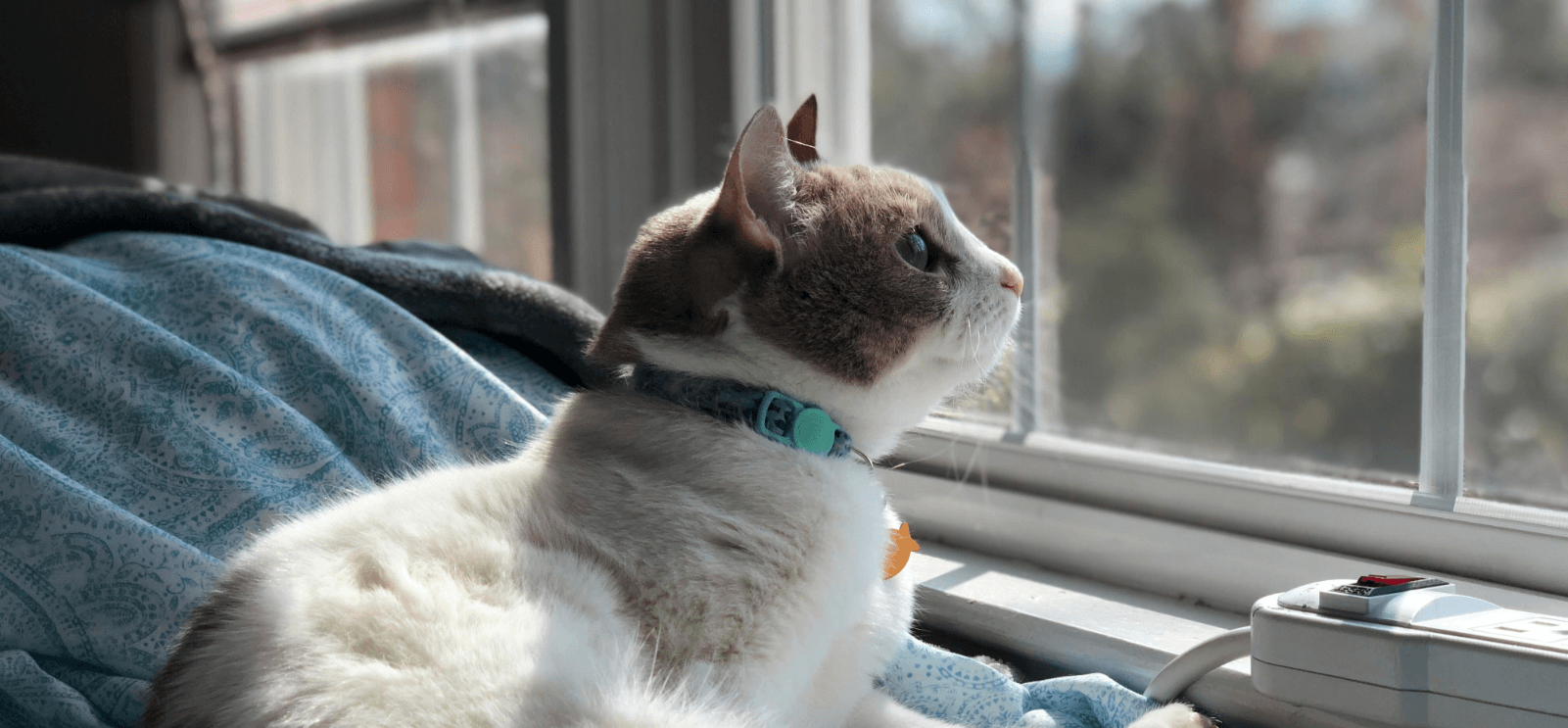Why having emotional support animals shouldn’t be stigmatized
4 min read
Joshua Staley | The Blue & Gray Press
By JOSHUA STALEY
Staff Writer
I was never really a cat person. I thought they were lazy and boring with no personality. Once I started college, my feelings began to change. I found myself watching more and more cat videos and dreaming about the day that would I adopt one for myself.
It wasn’t until after I came to terms with my anxiety and depression that I put my dream into action. I begin to learn about emotional support animals and how they could help mitigate the stress of having these disorders. I spent my entire summer vacation browsing through the SPCA and Humane Society websites looking for the perfect little companion, until finally I found Joyce.
The day I officially met her was the happiest I’d been in a very long time. The joy I experienced made me a completely new person. I came to depend on her almost as much as this sweet little cat depended on me.
Many people don’t know that emotional support animals can be any domesticated animal ranging from cats and dogs to teacup pigs and ducks. This is the major difference between ESAs and other service animals; while a service dog for a person who is hearing impaired must be able to assist them with very specific tasks, ESAs offer support simply by being there.
Before Joyce came into my life, there were mornings when I couldn’t get myself out of bed. I was overwhelmed with this intense feeling of despair that stopped me from living my life and made it impossible to function properly. Therapy and medication can only do so much for a person and I constantly found myself filled with self-pity. Joyce gives me the motivation to push through these instances and on the days that recovery seems impossible, I have her there to hold. She makes me feel safe and gives me an ally. I know the love and kindness I get from her are unconditional, and that no matter what, we can count on each other.
I’ve heard some very unsettling things about emotional support animals being shams. Although I can understand that it may seem laughable to someone who doesn’t experience life the same way that I do, my relationship with Joyce is not a joke.
I won’t negate the fact that there are individuals out there that try and exploit the privileges ESAs get for their own personal gain. Maybe they’re going away to college and just don’t want to have to go a day without seeing their beloved pet. Or maybe they’re traveling and don’t think they should have to pay any fees associated with bringing your pet onto a train or plane. These people negatively stigmatize emotional support animals and do not represent individuals like me who actually benefit from emotional support animals.
What people do not realize is these animals help us in more ways than anyone could have imagined. Joyce keeps me on a set schedule. She tells me when I need to wake up and she forces me to follow through with commitments in both school and work. She is my rock; a constant reminder that I can do better, and everything will be okay. She helped me to realize I deserve good health and happiness.
It’s easy for people to acknowledge the validity of a service animal for someone with a physical disability like blindness or those who are hearing impaired. But for those of us who are functionally disabled in a more invisible way, the negative rhetoric around ESAs reminds me that our society refuses to treat neurological disorders the same as physical illnesses such as blindness. This, of course, is part of a much bigger conversation that needs to be had.
Joyce, like any animal, has her flaws. She’s moody and extremely picky about the kind of cat food I give her. She also has some anxiety issues of her own when I bring new people into our shared space. However, Joyce has a heart full of love—not just for me but for every other person she encounters. She may need a little time to warm up, but once she does, she’ll be running after you in the hall and jumping onto your lap for some snugs and an ear scratch. These flaws are a perfect reminder that we all have challenges in life, and she inspires me to not let these challenges hold me back and to love everyone just as she does.
I’ve learned so much about how wonderful it is to have a cat in your life, and I sincerely hope critics of emotional support animals can come to understand that they provide a real service to those with mental disabilities. I am so lucky to have such an incredible support system of friends and family in my life, but people get busy and not everyone can be there when you need them. The bond I have with Joyce is something special. She’s always there when I get home and she never pushes me to answer a million questions when all I need is quiet. She just wants to do is be by my side and have me hold her when I need to curl up in a ball and cry.\
There isn’t a single day that goes by that I don’t acknowledge the beauty of our relationship. I can’t even imagine my life without her in it.


